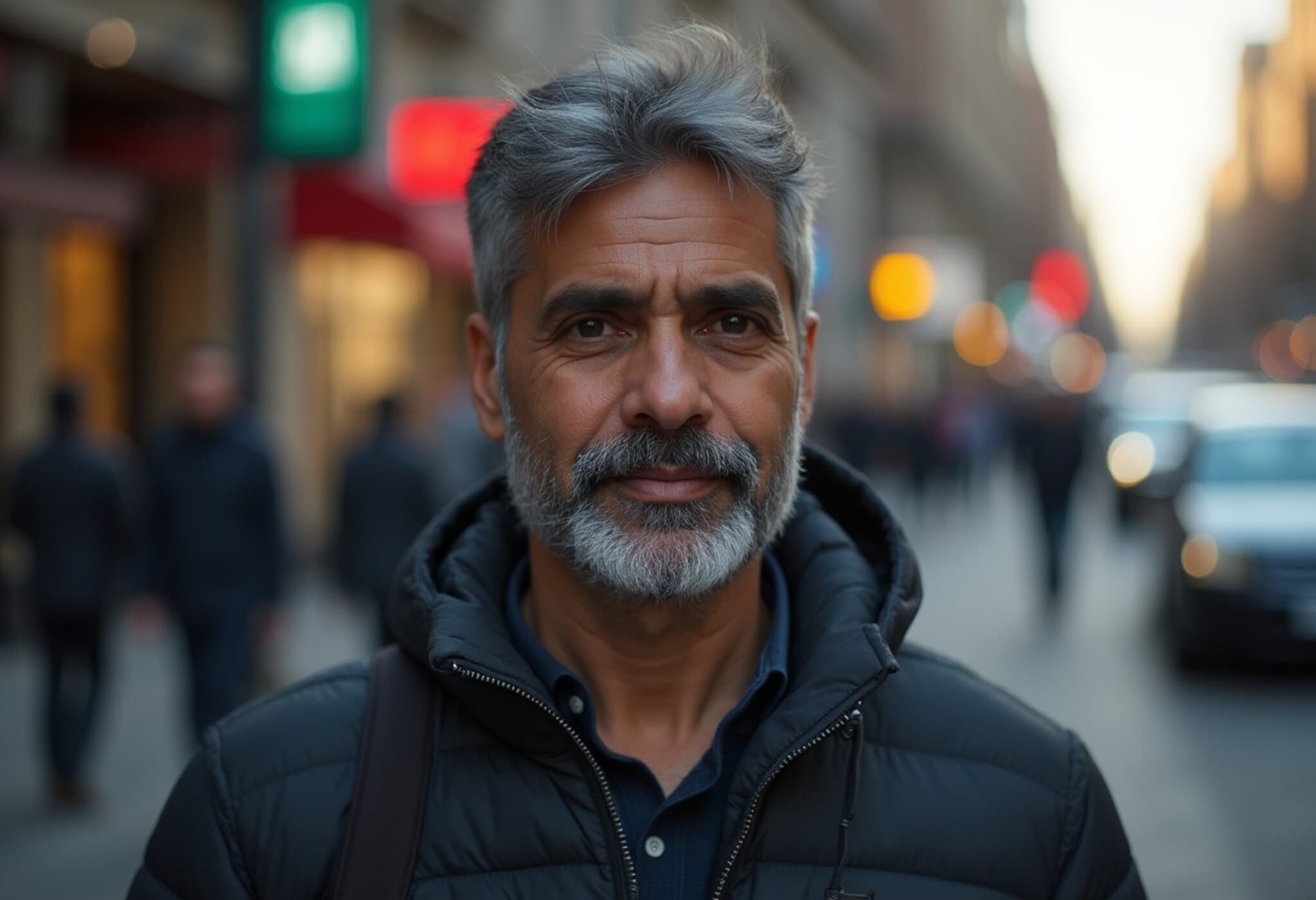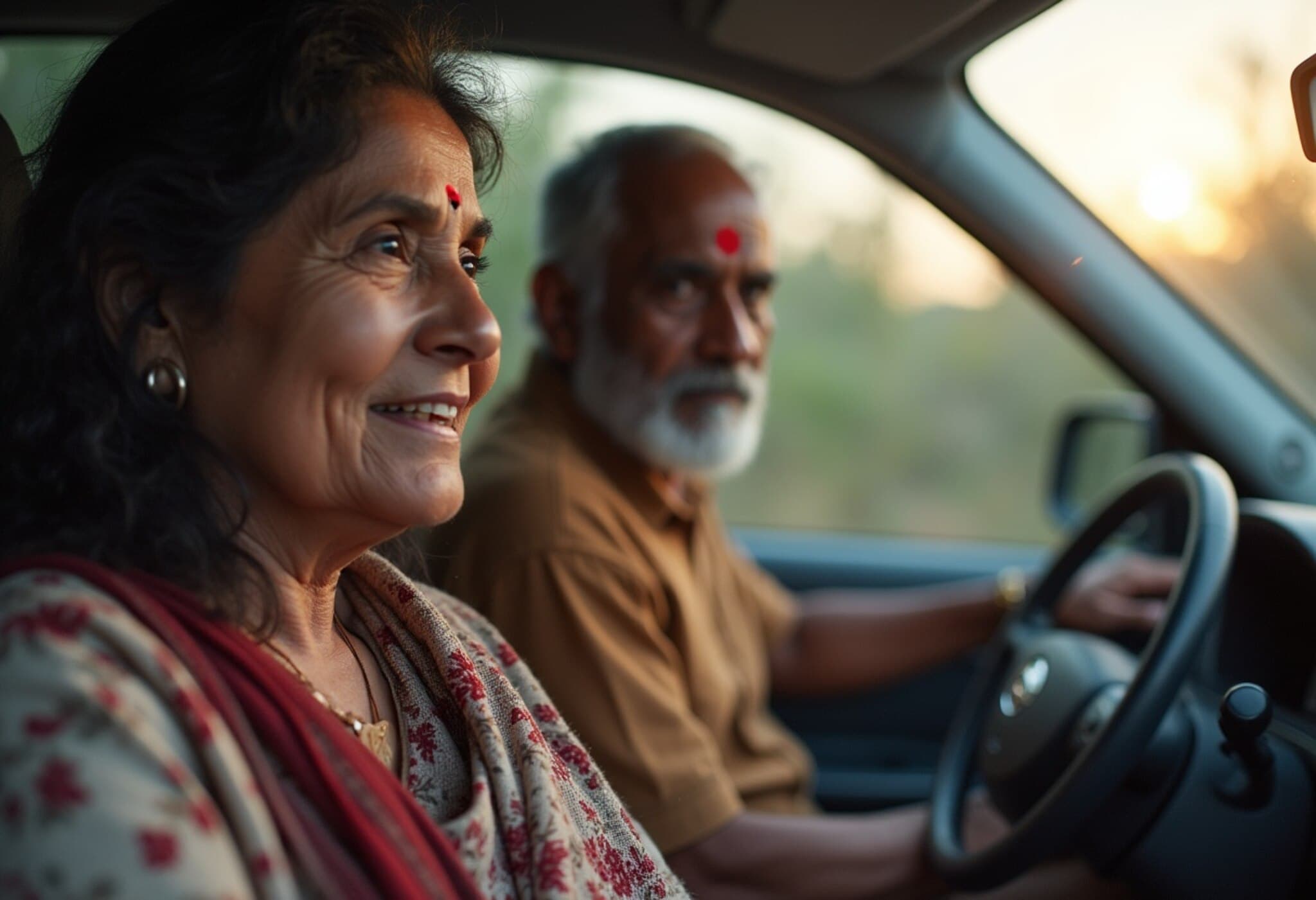Four Indian-Origin Seniors Found Dead After Vehicle Crash in West Virginia
A deeply sorrowful chapter closed on August 2, 2025, when authorities in Marshall County, West Virginia, discovered the bodies of four elderly Indian-origin individuals who had been missing since July 29. The group had been undertaking a road trip from New York to Pennsylvania but tragically lost their lives in a vehicle accident on a remote embankment near Big Wheeling Creek Road.
Heartbreaking Discovery After Extensive Search
Their light green Toyota Camry, bearing New York license plate EKW2611, was found at around 9:30 pm Saturday night, lodged at the bottom of a steep and rugged terrain—a location that emergency crews described as extremely difficult to access. The recovery operation spanned more than five grueling hours, underscoring the challenging conditions rescuers faced.
Who Were They?
- Dr. Kishore Divan, 89
- Asha Divan, 85
- Shailesh Divan, 86
- Gita Divan, 84
This close-knit group was last positively identified at a Burger King on Peach Street in Erie, Pennsylvania, on July 29, corroborated by their last known credit card transaction. They were en route to the Palace of Gold, a revered religious shrine connected to the International Society for Krishna Consciousness (ISKCON), reflecting the cultural and spiritual significance of their journey.
Unfolding of Events Leading Up to the Tragedy
The group intended to arrive at the Palace of Gold for a stay on Tuesday night but never checked in. Calls to their phones went unanswered from July 29 onwards, and cellular data indicated their phones were last active near Moundsville early on Wednesday morning. The unexplained silence sparked urgency among their family and local authorities, prompting an extensive search involving helicopters and multiple law enforcement agencies.
Contextual Insight: Challenges in Missing Persons Cases Among Elderly Immigrant Communities
This heartbreaking incident highlights significant vulnerabilities faced by elderly immigrants, especially when travelling long distances without close local family support. For seniors like the Divans, unfamiliarity with difficult terrains, possible medical vulnerabilities, and limited access to immediate help can escalate crisis situations.
Moreover, the emotional toll on both the victims’ families and the wider Indian-American community reverberates beyond this tragic accident, raising awareness about the importance of preparedness and communication for senior travelers.
Broader Perspective: A Rising Concern Over Missing Persons From Indian Diaspora
Notably, this case follows another disappearance in June involving a young Indian woman in New Jersey, spotlighting complex challenges surrounding immigrant safety, cultural expectations, and legal support systems in the US.
Experts urge immigrant communities and policymakers alike to engage more proactively in strategies that protect vulnerable populations, including enhanced tracking technologies, community liaison programs, and culturally sensitive emergency response frameworks.
Moving Forward: Lessons and Reflections
While the restoration of closure to the Divan family brings some solace, it inevitably invites reflection on how tragic accidents among aging immigrant populations can be mitigated. As local authorities review this operation, calls for improved road safety measures in remote areas and stronger communication networks for vulnerable travelers become increasingly pertinent.
Expert Commentary
Dr. Anita Sharma, a specialist in geriatric care and immigrant health, noted, "Elderly individuals embarking on long journeys need tailored support and contingency planning, especially when crossing unfamiliar states. This tragedy also underscores the need for culturally aware community support for immigrant elders living far from their families."
Editor's Note
The heartbreaking loss of the Divan family members during what was meant to be a meaningful spiritual journey reminds us of the fragile intersection between aging, immigration, and safety in America. It prompts critical questions about how communities can better support elder immigrants, what infrastructural improvements are needed in rural travel corridors, and how technology can be deployed to prevent similar tragedies. As we honor their memory, their story serves as a somber call for empathy, preparedness, and action.














